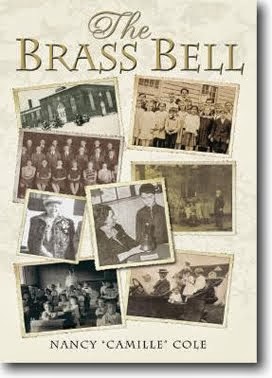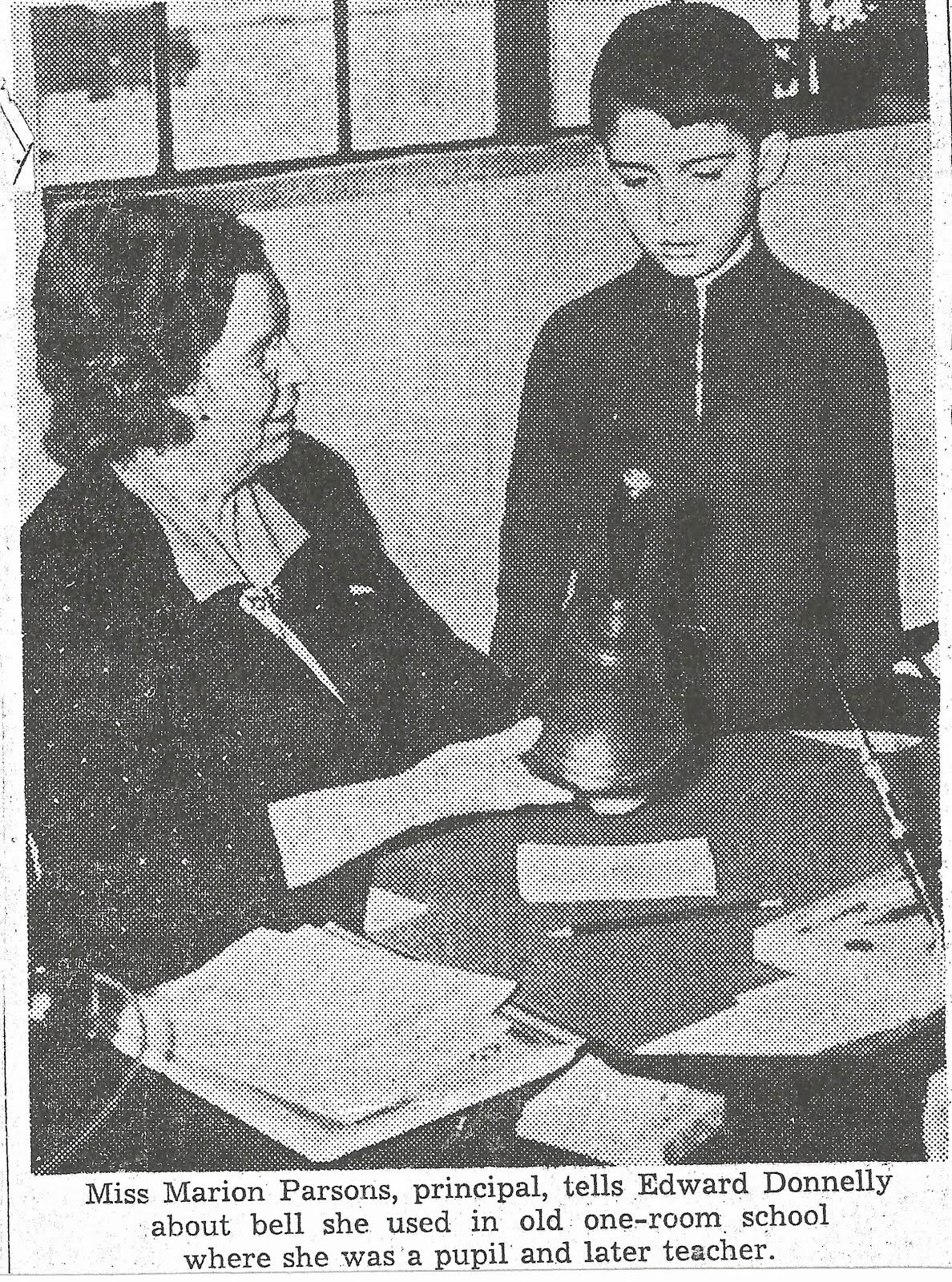 Remembering Marion Parsons
Remembering Marion Parsons At the recent Panel Discussion sponsored by the Solvay-Geddes Historical Society, we talked about remembrances of Miss Marion Parsons, Cherry Road School, and Westvale. Panel members each shared one special memory about the woman, the school, or the community. Not wanting to take up time with my own story that evening, I'll share it now.
We lived with my Aunt Marion when I was a baby until I was old enough to walk. As memories come into focus about the beginning of my life, I remember her coming home in the afternoon from the school, just two doors away. Always jolly. Always happy to see me, in my version of history. She would sit in her big rocking chair and hold me on her lap. I’d nestle my head into her shoulder, listen to the hum of her hearing aid. We would rock and rock. The creak of the rocking chair kept a constant rhythm and beat to the stories about the olden days, the old clock on the mantle. When I was a little girl, she would say, my father would hitch up the horse and buggie. These stories about the olden days came to be known to the two of us as "stories out of her think." I must have slept. She must have slept, too, during these afternoons in the chair, to the creak of the rocker, lulling us both into a dream-state. I would imagine myself riding with Marion, my grandmother and Aunt Martha in the rumbling buggy down the dirt road, through the potato field and on to the cherry orchard. Men and women would be working throughout the orchard, ladders extended into trees, wagons filled with boxes of fruit.
After we had slumbered and drifted through the olden days, after Marion had rested from her day at school, she would let me ride on her foot—a pretend ride on a horse to Banberry Cross, ride a horse, ride a horse.
I don’t remember her ever being cross with me. Her face always lit up when she came into the room. I would run to her. She would hold me and give me the love I craved from her. Until one day.
Each morning I would watch her put the braces onto her legs and then trudge across the lawn toward the schoolyard. I’d watch until she was out of sight. On this particular day, I must have been old enough to follow her, three or so, because after a while I followed her to the school and found my way to her office.
Expecting her to be thrilled to see me and proud of my resourcefulness, I ran straight into her office and stopped short of her towering desk. A dark cloud I had never seen or imagined descended across her face. Her voice shot across the desk in a tone I had never heard.
“What in heavens name are you doing? How did you get here?” She grabbed my hand, pulled me toward the door, gently, yet firmly, in an unfamiliar gesture. My first and my last scolding from my Aunt. I never crossed her again. Instead, from that day on, I thought things through first when it came to Aunt Marion. She was the one person in the world I didn’t want to let down.
By the time we got back to the house, it was my mother for whom Marion had words. I stood back and listened to the rebuke, terrified. Marion turned to me on her way out the door, bent down, and gave me one of those hugs I’ll never forget, the smell of her talcum powder, the tear in the corner of her eye let me know that she had suffered more from the scolding than I.
Picture: The baby is me, being held by my mother. That's Marion on the right, and my Grandmother, Grace, in the background. Our family was big on Sunday afternoon get-togethers. I believe this was a tradition brought forward from many generations in the past and shared by other Westvale neighbors.






